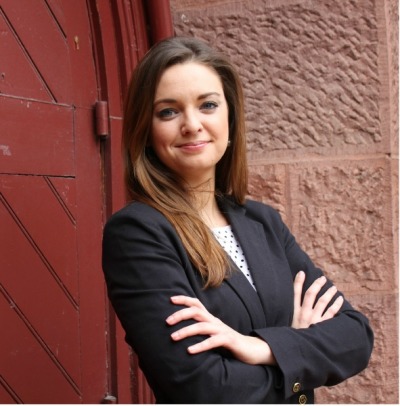Seeking the 'Spirituality of Abortion' at Harvard Divinity School

A Harvard Divinity School student, Kassi Underwood, shared about her post-abortion pain and spiritual-but-not-religious efforts to transcend her grief in an article published on the school's website in March 2017. While the purpose of the article was essentially to promote Underwood's memoir, one can't help but lament the young woman's faltering attempt to mask the loss of her child with self-defined spirituality and Eastern religious rituals.
After describing her circumstance as a 19-year-old undergraduate student whose abortion wrought heartache, loss, and drug and alcohol addiction, Underwood set out on a journey to uncover what she calls the "spirituality of abortion" through religious rituals. She explained:
I didn't even know I needed to grieve until a Buddhist abortion therapist named Ava Torre-Bueno told me. She told me every choice involves loss.
And:
Grief is part of everyday life. If I'm looking at the dessert menu and choose the key lime pie over the chocolate cake, I've experienced a loss—a tiny loss. I got married a couple of years ago, and there was a loss involved with that choice. If we've chosen something, we're supposed to be happy about that decision because choice is a function of power. But the reality is, we've killed off all other possibilities, so we have to grieve them.
Sure, every choice has a consequence. But abortion leaves women and men grieving more than mere possibilities. As I type, I'm striving to be as understanding of Underwood's comments as possible. As I've never experienced the loss of an unborn child, my perspective is admittedly limited here. However, it seems likening the choice to abort an unborn child to a missed dessert option belittles Underwood's own post-abortion journey and those of other women.
She does decry radical feminists' efforts to erase the emotional trauma of abortion as "ancient forms of patriarchal oppression." But throughout the article Underwood shrewdly avoids taking a pro-life stance, though she testifies to the pain and heartbreak associated with abortion. Instead she argues for "a completely new way forward around abortion, based on nothing we have ever seen before."
What's unfortunate is the solution Underwood offers to others dealing with similar grief. "Everyone who has an abortion deserves to know that it's absolutely possible to emerge with peace of mind and a thrilling life," she writes. But sadly, Underwood seems to point towards a vague community experience based on her own New Age meditation and Eastern mysticism "transcendence" reminiscent of yoga chapel sessions at Duke University.
Most saddening about Underwood's account is her understanding of God. She asserts:
Fraught as "God" may be, I use this word because people tend to have some context for it. I could have used any word—love, trust, universe, higher self, energy, him, her, they. I think it's more like: Where is God to me? God is in and through everything—unless I'm in a bad mood.
Healing after abortion is possible, but not through Eastern mysticism rituals and secular teachings. At the 2018 March for Life I marched beside post-abortive Silent No More women holding "I Regret My Abortion" signs. As many of these post-abortive women attested at the March for Life, healing and wholeness after abortion starts with salvation through the blood of Jesus Christ.
Women involved in the Silent No More Awareness Campaign not only speak to post-abortive grief through shared stories, but also seek to prevent other women from enduring the same trauma. Sharing your story of pain and loss after abortion takes courage. Seeking an end to abortion so other women can avoid the same pain and loss takes selflessness.
Let us pray Underwood recognizes the empty promises of "spiritual" rituals. May she come to know the peace and healing of our Savior Jesus Christ and be a witness to His wholeness and help while at Harvard Divinity School.
Originally posted at Juicyecumenism.com.




















